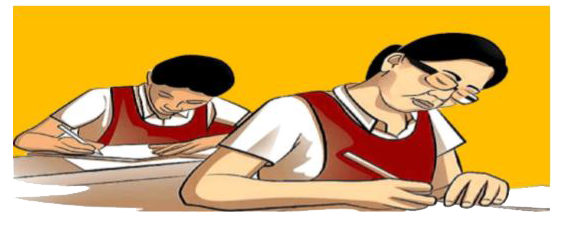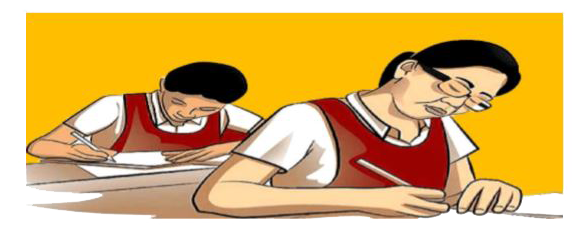In answering a question on a multiple choice test, a student either knows the answer or guesses. Let 35 be the probability that he knows the answer and 25 be the probability that he guesses. Assuming that a student who guesses at the answer will be correct with probability 13 , what is the probability that the student knows the answer given that he answered it correctly
To find the probability that the student knows the answer given that he answered it correctly, we can use Bayes' theorem. Let's denote:
- K: the event that the student knows the answer.
- G: the event that the student guesses the answer.
- C: the event that the student answers correctly.
We are given the following probabilities:
- P(K)=35 (the probability that the student knows the answer)
- P(G)=25 (the probability that the student guesses)
- P(C|K)=1 (the probability of answering correctly if the student knows the answer)
- P(C|G)=13 (the probability of answering correctly if the student guesses)
We want to find P(K|C), the probability that the student knows the answer given that he answered correctly.
Step 1: Calculate P(C)
Using the law of total probability, we can find P(C):
P(C)=P(C|K)⋅P(K)+P(C|G)⋅P(G)
Substituting the known values:
P(C)=(1)⋅(35)+(13)⋅(25)
Calculating the second term:
P(C)=35+215
To add these fractions, we need a common denominator. The least common multiple of 5 and 15 is 15:
P(C)=915+215=1115
Step 2: Apply Bayes' Theorem
Now we can apply Bayes' theorem:
P(K|C)=P(C|K)⋅P(K)P(C)
Substituting the values we have:
P(K|C)=(1)⋅(35)1115
Step 3: Simplify the expression
Now we simplify the expression:
P(K|C)=351115=35⋅1511=3⋅155⋅11=4555=911
Final Answer
Thus, the probability that the student knows the answer given that he answered it correctly is:
911
- G: the event that the student guesses the answer.
- C: the event that the student answers correctly.
- P(G)=25 (the probability that the student guesses)
- P(C|K)=1 (the probability of answering correctly if the student knows the answer)
- P(C|G)=13 (the probability of answering correctly if the student guesses)
Using the law of total probability, we can find P(C):
Now we can apply Bayes' theorem:
Now we simplify the expression:
Thus, the probability that the student knows the answer given that he answered it correctly is:
Topper's Solved these Questions
Similar Questions
In answering a question on a multiple choice test, a student either knows the answer or gusses. Let 34 be the probability that he knows the answer and 14 be the probability that he gusses. A ssuming that a student who gusses and the answer will be correct with probability 14 What is the probability that the studentthe answer given that he answered it correctly?
View SolutionIn answering a question on a multiple choice test, a student either knows the answer or guesses. Let 34be the probability that he knows the answer and 14be the probability that he guesses. Assuming that a student who guesses at the answer with probability 1/4. what is the probability that the student knows the answer given that he answers correctly.?
View Solution
Knowledge Check
In a test an examinee either guesses, copies or knows the answer to multiple choice question with five choices. The probability that he makes a guess is 14 and probability that he copies the answer is 18. The probability that his answer is correct given that he copies is 110. Find the probability that he knows the answer to the question given that he correctly answered it:
A1B1011C12D1219In a multiple-choice test, an examinee either knows the correct answer with probability p, or guesses with probability 1-p. The probability of answering a question correctly is 1m, if the he or she merely guessess. If the examinee answers a question correctly, the probability that he or she really knows the answer is .
Amp1+mpBmp1+(m−1)pC(m−1)p1+(m−1)p)D(m−1)p1+mp
In answering a question on a multiple choice test for class XII, a student either knows the answer or guesses. Let 3/5 be the probability that he knows the answer and 2/5 be the probability that he guesses. Assume that a student who guesses at the answer will be correct with probability 1/3. Let E1,E2, E be the events that the student knows the answer, guesses the answer and answers correctly respectively.

Based on the above information, answer the following
What is the probability that the student knows the answer given that he answered it correctly?
View SolutionIn answering a question on a multiple choice test for class XII, a student either knows the answer or guesses. Let 3/5 be the probability that he knows the answer and 2/5 be the probability that he guesses. Assume that a student who guesses at the answer will be correct with probability 1/3. Let E1,E2, E be the events that the student knows the answer, guesses the answer and answers correctly respectively.

Based on the above information, answer the following
What is the value of P(E1)?
View SolutionIn answering a question on a multiple choice test for class XII, a student either knows the answer or guesses. Let 3/5 be the probability that he knows the answer and 2/5 be the probability that he guesses. Assume that a student who guesses at the answer will be correct with probability 1/3. Let E1,E2, E be the events that the student knows the answer, guesses the answer and answers correctly respectively.

Based on the above information, answer the following
Value of k=2∑k=1p(Ek)
View SolutionIn answering a question on a multiple choice test for class XII, a student either knows the answer or guesses. Let 3/5 be the probability that he knows the answer and 2/5 be the probability that he guesses. Assume that a student who guesses at the answer will be correct with probability 1/3. Let E1,E2, E be the events that the student knows the answer, guesses the answer and answers correctly respectively.

Based on the above information, answer the following
Value of P(E∣E1) is
View SolutionIn answering a question on a multiple choice test for class XII, a student either knows the answer or guesses. Let 3/5 be the probability that he knows the answer and 2/5 be the probability that he guesses. Assume that a student who guesses at the answer will be correct with probability 1/3. Let E1,E2, E be the events that the student knows the answer, guesses the answer and answers correctly respectively.

Based on the above information, answer the following
k=2∑k=1P(E∣Ek)P(Ek) Equals
View SolutionIn answering a question on a multiple choice test a student either knows the answer or guesses. Let the probability that he knows the answer is 34 and probability that he guesses is 14. Assuming that a student who guesses the answer and given correct answer is 14. What is the probability that student knows the answer given that he answered it correctly?
View Solution
